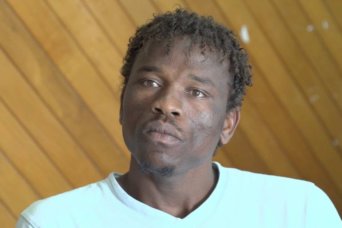- About
- Topics
- Story
- In-Depth
- Picks
- Opinion
- News
- Donate
- Signup for our newsletterOur Editors' Best Picks.Send
Read, Debate: Engage.
| located: | South Sudan, Australia |
|---|---|
| editor: | Bob Koigi |
When 25 year old Abdul Aziz Muhamat, a Sudanese refugee, stood in Geneva to receive the prestigious 2019 Martin Ennals Award for Human Rights Defenders, his speech, a harrowing tale of the painful memories he underwent in an Australian camp, once again shed light on the growing violation of migrant rights at a time when global conflict, terrorism and climate change have exacerbated migration and increased refugee population.
Fleeing civil conflict in his home country, Aziz boarded a flight to Indonesia, then took a boat to Australia, which was intercepted by authorities. Aziz was sent to the Manus Island detention centre where he was held for five years. The camp has brought to the fore everything that is wrong with Australia's offshore detention centre policy; a policy that has seen migrants locked up, beaten, treated as criminals and stripped off their names for a numerical identification system. For the past five years, Aziz has been the voice and face of the refugees in the camp, documenting the harsh conditions through a series of WhatsApp messages and tweets.
For the 26 years the Human rights award has existed, it is the first time it has been awarded to a person who has directly endured suffering and violation of refugee rights – it is a commendable move that now shifts the conversation to the role of Western nations in the refugee crisis. While some schools of thought have argued that developed nations only pay lip service in addressing the refugee crisis, the revelation that camps in these countries have become torture chambers to desperate and helpless people calls on the international community to move beyond condemning, to introducing mechanisms that name, shame and punish violators.
With the refugee situation expected to become complicated now more than ever, the world must speak in one voice in upholding the basic rights and freedoms of every citizen of the world, irrespective of their status.
